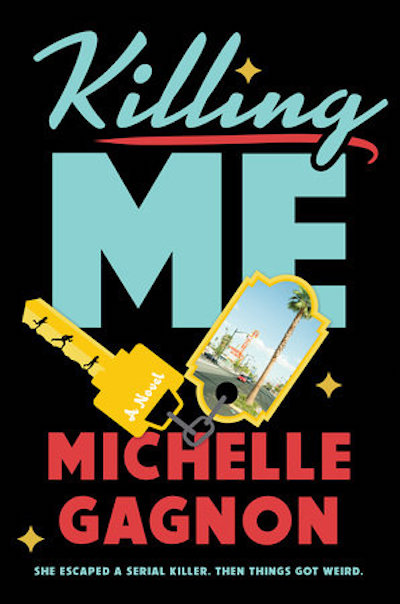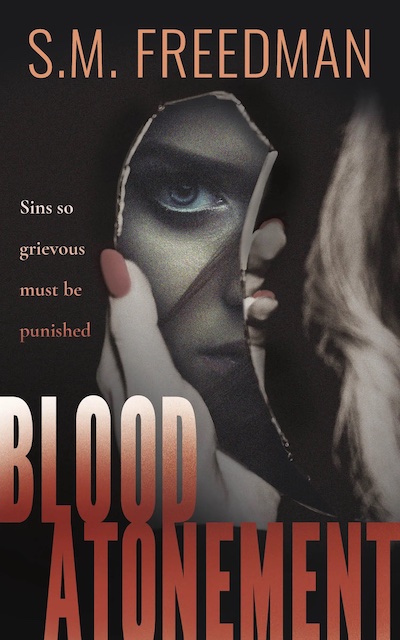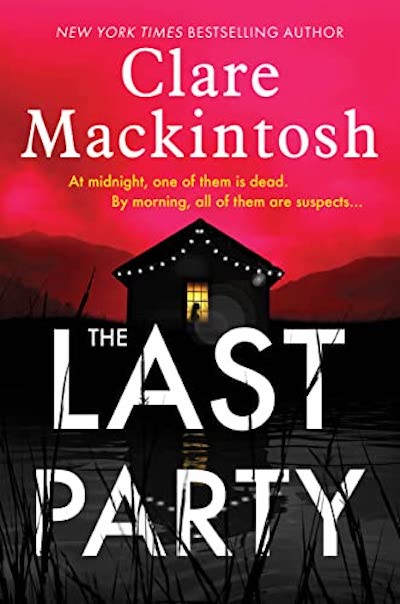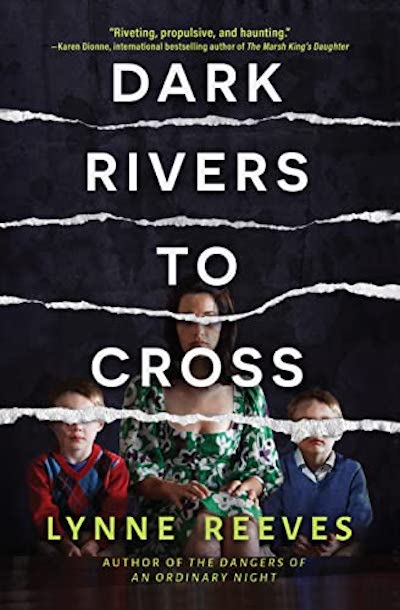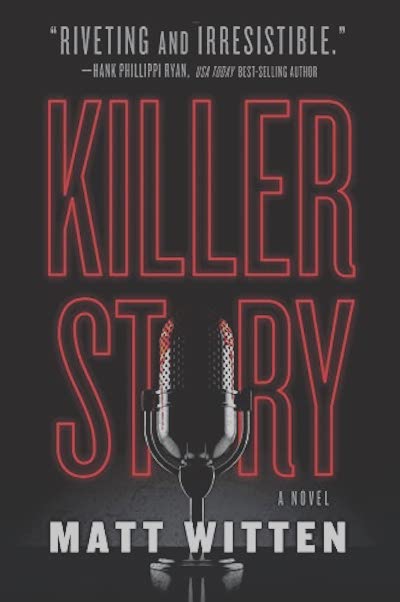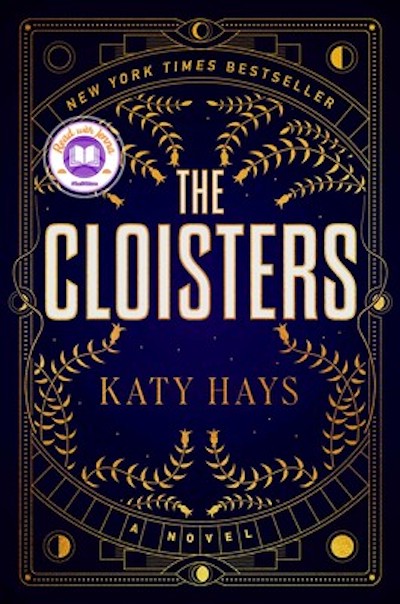Alyssa, née Alice, Macallen, has changed her name and subjugated everything else about herself to please her unpleasable husband, Bill, who has left with no explanation. All Alyssa knows for sure is that he’s taking his wealth with him and she has no job and no prenup, which he insisted was unnecessary because he was going to love her forev—you know the rest. Anyway, Bill’s gone and Alyssa’s sitting in a hotel bar nursing her sorrows when she meets a woman who may be even worse off. Bree Lorrance is living at the hotel after getting away from an abusive boyfriend. She moves into Alyssa’s guest house, and soon readers and Alyssa are wondering how things have taken such a fast turn. Far from lonely and terrifying, Alyssa’s days are now taken up with helping her friend, who encounters a new tragedy that sets the women, and another player who becomes involved and moves in, on an exciting trajectory. We’re left wondering whom Alyssa can trust in her new life, if anyone. Are some of these strange new people part of Bill’s team or out to get her for some other reason? Or maybe Alyssa is making everything up and we’ve got an unreliable narrator on our hands…it’s impossible to know until Ryan brings all to a satisfying ending that readers will never see coming. The author’s fans will snap this up; it’s also a must for Liane Moriarty’s readers.
Psychological
Ever feel like you’ve lost your reading mojo? Spending too much time consuming mediocre series on Netflix? Then this fun, female-driven narrative featuring a grifter/psych student, a terrifying serial killer, a cool and elegant femme fatale, and a handful of Las Vegas ladies is sure to get you back into the reading groove. A serial killer is stalking Amber’s college campus, and despite all her street smarts he manages to kidnap her, dragging her off to his lair. Just when things start to get serious, Amber is liberated by this cool and aloof woman who promptly disappears. But when the cops, and then the FBI, show up, Amber gets jittery—she and law enforcement don’t mix—so she heads out of town, randomly picking Vegas. It would be foolhardy to try to summarize this story; it’s got more twists and turns than the Tour de France. Let’s just say that Amber’s voice—witty with a side of snark—is just everything, the dialogue is pumping, and the characters are, strangely enough, completely credible. And how refreshing is it to read a thriller without any male leads? Turns out you don’t miss them at all. An absolute delight from beginning to end.
Locked-room mysteries and thrillers are booming, but this one has a twist. In the 1990s, young Grace DeRoche’s family lives in a Canadian branch of the FLDS, the Fundamentalist Church of Jesus Christ of Latter-Day Saints. Talk about a locked room. Children in the cult headed by Warren Jeffs, who in real life has only left the FBI’s Most-Wanted list because he’s serving a life sentence for child sexual assault, live with their fathers and the men’s multiple wives in Brigham, a secretive, abusive compound. They spend their days praying, in fear of outside-world apostates, are illiterate, and are subject to harsh “corrections.” Girls are married young to much older men. After the police come and “Brigham’s Ten”—Grace and nine other children—escape, the rest of the compound dies by mass suicide. In the years that follow, Grace remains in the locked room of her mind: she has dissociative identity disorder, with multiple personas taking over when she’s stressed. Stress comes in the deaths of members of the Ten, and Detective Beau Brunelli must protect Grace, a challenge when the woman doesn’t believe she needs protection and is too frightened and confused to accept help. Freedman could have made this sensationalist, but it’s a thought-provoking read, providing a look at life after a cult and portraying the survivors as real people, warts and all. The shocking ending here is a reward of its own, and getting there is a journey through incredible details of life inside Warren Jeffs’ world and inside the mind of a troubled woman. While you wait, try the Netflix documentary Keep Sweet: Pray and Obey, which covers the FLDS and is also absorbing.
In Paris’s latest thriller, a London woman’s trip from rags to riches and back again is a tense fight against a wealthy man who can’t be denied his out-of-control wishes. The tale alternates between two timelines. In the present, readers find Amelie Lamont kidnapped and trapped one floor above her husband, Ned Hawthorpe, who’s also kidnapped and whose rich father doesn’t seem too interested in getting him back. While they wait, Ned makes clear that he’s his stone-cold father’s son, telling the kidnappers that they can go ahead and kill Amelie as it will make his father cough up the money. The past timeline, which takes place several years earlier in the 1990s, shows how Amelie got into this nightmare, starting when her widowed father died and left her homeless. She finds her way to a job at a magazine, with Ned the boss. Desperate for money for college, she makes a startling deal with the rich man, one she immediately regrets. Both Amelie’s time in her dark prison and the lead up to it are psychologically reminiscent of Emma Donoghue’s Room, portraying the intense inner machinations of a woman pushed to the brink. But this web of fear and lies is much more complex, satisfyingly so, than Room, involving many more characters, intricate plotting, and layers of subterfuge. Paris’s fans won’t be disappointed and readers new to the author will be hooked.
Rhys Lloyd, a former opera singer, has recently built a series of luxury homes overlooking Mirror Lake, on the boundary between Wales and England. Neither the process nor the end results endear him to the locals, to say the least. To attempt to mend fences, and bring the townies and the posh lake crowd together, he throws a massive New Year’s Eve party, only to disappear in the middle of it. When Rhys’s body is found floating in the lake on New Year’s morning, no one seems all that surprised. Nor sad. Not the town folk, not his wife, and certainly not DC Ffion Morgan, who is assigned to the case. Ffion is a local, back home after a failed marriage, and her search for the killer brings her close to people she’s known her whole life, and close to secrets of her own. Against her wishes, she’s paired with DC Leo Brady from the English side of the lake, and they provide every sort of tension imaginable, from national to sexual, giving the book a good bit of levity. Like the TV series “Broadchurch” and the novels of Ann Cleeves, this wonderful novel takes the reader—through twists and turns, and red herrings aplenty—deep within a community. Crime fiction is a whole lot better now that DC Ffion Morgan has arrived.
Jonah and Luke Blackwell are teen brothers-by-adoption who are close in age, and close generally. But they disagree on one big thing: whether to find out their origins. Adopting from foster care, Lena Blackwell was planning to take in one child, but on the big day found him holding hands with a smaller boy, and the rest is history. But it’s history that Jonah can’t leave alone. Lena is at first mildly dissuasive, saying only that the adoption was closed for a reason. As time goes on, however, she grows increasingly frightened that Jonah will uncover why she’s a virtual recluse at the Millinocket, Maine inn that she and Luke run while Jonah attends college. Curious too is why the inn is owned by Coop, the Native Penobscot man whom the boys thought was an employee. And why, when a guest arrives at the inn who seems to know Lena from the past, is she bundled off to stay with the competition? As flashbacks that are haunted with fear take readers back to Lena’s long-ago struggles and her arrival in Millinocket, present-day determination, exasperation, and love bring us closer to an unpredictable and scary finale. This fast read is for those who enjoy strong protagonists digging their way out of tough circumstances.
It’s great to have Matt Witten publishing crime fiction again. The author of one of my favorite series, the Jacob Burns mysteries, he returned to crime fiction last year with the riveting thriller The Necklace. Killer Story is in the thriller vein, and like The Necklace it provides the reader with plenty to dwell on instead of just rushing to the end—not that there’s anything wrong with that. Petra Kovach is a bright young journalist in a contracting industry. No sooner does she land a job than a year later she’s out the door, a victim of downsizing. It’s happening again, this time at the “Boston Clarion,” and to bide two more weeks she pitches her boss a true-crime podcast that would reopen the violent murder of super right-wing Olivia, a Harvard undergrad—and YouTuber—who had an enormous following. For Petra, this is personal. She was Olivia’s counselor at summer camp, and the two remained tight ever since, despite their political differences. But as Petra tracks down possible murderers, and as her audience grows by the thousands then the millions, she sheds first any journalistic ethics, then any ethics at all. Witten sustains the suspense, with the narrative just leaping ahead, chapter by chapter, while at the same time most readers will be wondering: does the end justify the means? And how far can Petra go? Perfect for fans of Dervla McTiernan and Hank Phillippi Ryan.
Murder at the wedding of one of Sri Lanka’s one percent? I initially imagined this to be a cozy affair, with lots of chatter about couture, gossip about affairs, and the body of one of the bridesmaids—the one no one likes—being discovered in the shrubbery, poisoned. Boy, I couldn’t have been more wrong. Yes, no extravagance is spared or undocumented—Vuitton is the bag of choice—but this crime novel is far darker, far more terrifying than I had ever imagined. It’s super-perfect Kaavi’s wedding—she of the billionaire family, the foundation devoted to girl empowerment, the perfect blow-out—and she’s invited her former best friend, Amaya, to the wedding. Not only were the two besties all throughout childhood, they were college roommates in the U.S., until an epic falling out involving Amaya’s boyfriend—whom Kaavi is now set to marry. Though they haven’t spoken in five years, Amaya flies to Colombo with one goal: stop the wedding, by any means necessary. Jealous much? Oh, if only it was mere jealousy in this nothing-is-what-it-seems narrative. Perfectly paced, rich in Sri Lankan culture, witty in its descriptions, and well aware of gender and class disparities, Jayatissa’s creation is that rare bird: the perfect thriller. By the author of My Sweet Girl, this book will appeal to fans of Julie Clark, Samantha Downing, and Lucy Clarke.
A wonderfully dark novel rich in characterization. After Ann Stillwell graduates from college, she doesn’t waste a minute more in Walla Walla, WA, and heads to New York City’s Metropolitan Museum of Art (Met), where she has secured a summer position as curatorial associate. But there’s a mix up, and Ann ends up at the Cloisters, the Met’s museum and garden devoted to medieval art, located at the remote northern tip of Manhattan. Here she ends up working with Rachel Mondray, who is everything Ann isn’t: Yale educated, Harvard bound, immensely wealthy. Will they be friends, enemies, or frenemies? Friends, it turns out, providing they stick to Rachel’s terms. Under the tutelage of Patrick, the curator-in-charge, they research early Renaissance tarot cards in preparation for an upcoming exhibit. But the cards aren’t just visually beguiling. They are powerful in ways that go well beyond art history, capable of inspiring evil today. Hays does a wonderful job of opening up the lives of both Ann and Rachel, who forge an alliance—like the contestants in a Survivor-like TV show—that will see them safely through the summer. Or will it? Fans of Shapiro’s The Art Forger, Perez-Reverte’s The Flanders Panel and Santlofer’s The Last Mona Lisa will love this book.
Jewelann Jordan attends her high-school reunion to nonchalantly run into her former, sort-of-boyfriend, Christian Campbell, and dump him later that night as revenge for his behavior when they were teens. Christian, who reveals that he’s now a surgeon, and who takes more than one reunion attendee back to his hotel room, doesn’t take well to rejection. A few days later, Jewelann’s controlling husband, Ken, announces that he’s renting out their carriage house, has already found a tenant, and by the way he’s here already. You can guess who it is. Thus begins a fraught game. Jewelann believes Ken’s business trips are covering an affair, but she’s scared to confront him. And what if he knows about what Jewelann and Christian used to get up to in that carriage house, activities that Christian wants to continue and is threatening to reveal? The maelstrom of emotions and abuse boils over in the most shocking way, and readers will not be ready for the whoa-that’s-way-out-there ending. Hardy is a pseudonym for author Megan Hart, whose just released Coming Up for Air also opens with reunion shenanigans.[‘


